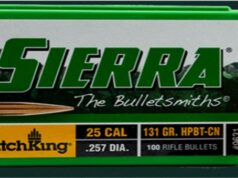Two groups of biologic treatments have been approved for AS, and others are in development.
TNF Inhibitors
One of the main drivers of inflammation in AS is a protein called tumor necrosis factor-alpha, or TNF-alpha. TNF-alpha is a type of cytokine, a small protein that plays a large role in mediating acute and chronic inflammation by signaling the immune system to get to work.
TNF-alpha and other cytokines bind to specific receptors on cells, stimulating the production of other immune system cells — including other inflammatory cytokines — and blood cells. But TNF-alpha is overactive in people with AS, causing significant inflammation.
TNF-alpha inhibitors, also known as anti-TNF therapies, are a type of biologic that neutralize TNF by blocking its signaling pathways, reducing inflammation and joint damage. Each TNF-alpha inhibitor works in a slightly different manner, so some may work for you while others do not. Anti-TNF drugs approved for ankylosing spondylitis include:
- Infliximab (Remicade)
- Etanercept (Enbrel)
- Adalimumab (Humira)
- Certolizumab pegol (Cimzia)
- Golimumab (Simponi)
Because TNF-alpha inhibitors dampen part of the immune system, they can increase your risk of developing potentially serious infections and decrease your ability to fight infections. They may also slightly increase your risk of certain cancers, most notably lymphoma and skin cancers.
IL-17 Inhibitors
Another major contributor to inflammation in ankylosing spondylitis is interleukin-17 (IL-17). Like TNF-alpha, IL-17 is a type of cytokine that signals specific immune cells to activate inflammation. Similar to anti-TNF drugs, IL-17 inhibitors work by binding to the protein and blocking its activity. The medications carry similar risks as TNF inhibitors, and they may additionally exacerbate or cause inflammatory bowel disease (IBD).
Two IL-17 inhibitors approved for AS, both of which target the IL-17A cytokine variety, are:
- Secukinumab (Cosentyx)
- Ixekizumab (Taltz)
A third IL-17 inhibitor, which inhibits both the IL-17A and IL-17F cytokine varieties, is:
- Bimekizumab-bkzx (Bimzelx)
The FDA approved bimekizumab for AS in September 2024.
Other Emerging Biologics
Research is ongoing to develop even more effective biologic treatments. For instance, brodalumab (Siliq) is a biologic that targets IL-17 receptors, offering a new approach to reducing inflammation. Rather than blocking specific IL-17 proteins, brodalumab binds to the IL-17 receptor A (or IL-17RA) on cells, preventing various IL-17 proteins — IL-17A, IL-17F, IL-17A/F, IL-17C, and IL-17E — from doing so and starting their individual inflammatory cascades.
Brodalumab is currently approved for treating plaque psoriasis, and research suggests it’s effective for a form of arthritis called axial spondylarthritis (ankylosing spondylitis falls under the axial spondylarthritis umbrella).









